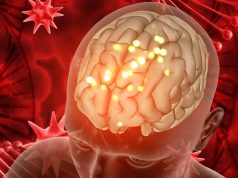
The following is a summary of some recent studies on COVID-19. They include research that warrants further study to corroborate the findings and that has yet to be certified by peer review.
Pandemic stress may subtly impact ovaries
Pandemic stresses have been linked with disruptions in ovulation for many women without obvious changes to menstrual cycles, according to a new study.
Nearly 66% of 112 women studied during the pandemic had ovulation disturbances, compared to only 10% of 301 women studied 13 years earlier, researchers reported on Sunday at ENDO 2022, the annual meeting of the Endocrine Society. Ovulation, or the release of an egg from an ovary, generally occurs about two weeks before the start of the menstrual period.
Disturbances seen during the pandemic included the egg being released before the uterus is ready for pregnancy to occur, and no egg being released at all.
The women in both studies were ages 19 to 35 and were not using hormonal contraceptives.
Menstrual diaries kept by participants showed significantly more anxiety, depression, frustration, negative moods, perceived outside stresses, sleep problems, and headaches during the pandemic.
“By comparing the two studies, and especially their daily diaries, we can infer that the SARS-CoV2 pandemic life disruptions cause silent ovulatory disturbances within mostly regular menstrual cycles,” study leader Dr. Jerilynn Prior of the University of British Columbia in Vancouver said in a statement.
Over time, persistent ovulatory disturbances can increase women’s risks for infertility, bone loss, early heart attacks, and breast and endometrial cancers, the researchers said.
New blood test could improve COVID-19 defenses assessment
A new blood test that measures immune-system T cells may yield more accurate information about the body’s ability to control the coronavirus than tests that measure antibodies, researchers say.
Unlike antibodies, T cells do not prevent infection from occurring, “but they protect from disease,” said study co-author Dr. Antonio Bertoletti of Duke-NUS Medical School in Singapore, in an email. They “recognize the infected cells… and destroy them.
T cells are also important for the efficient maturation of B cells, (which) also help to produce antibodies,” he said.
Antibody levels often wane over time, while T cells remain on the alert. In some people with weakened immune systems, COVID-19 vaccines can induce T cell responses even if they do not induce antibody responses.
“Measuring T cell activation is critical to assess the full extent of a person’s immunity,” said coauthor Ernesto Guccione of The Tisch Cancer Institute at Mount Sinai in a statement. Coronavirus variants like Omicron evade most of the neutralizing ability of antibodies, but T cells are still able to recognize the virus despite the mutations, he noted, making it even more important to have tests that can measure T cells.
The new test is presently available only for research purposes but is scalable to use broadly in the population, the researchers reported on Monday in Nature Biotechnology.
Low risk of major health issues seen with mRNA vaccines
Both commercially available mRNA vaccines are safe, with low risks of major adverse events, according to a large study that tracked 433,672 U.S. veterans for 38 weeks following vaccination.
Half the group had received Moderna’s MRNA.O COVID vaccine and the other half with similar characteristics and risk factors had received Pfizer PFE.N/BioNTech 22UAy.DE shots.
“Small-magnitude differences between the two vaccines were seen within 42 days of the first dose,” researchers reported on Monday in JAMA Internal Medicine.
“Individuals receiving the Moderna vaccine were slightly less likely – a difference of less than two-tenths of one percent – to experience stroke, myocardial infarction, other thromboembolic events, or kidney injury,” said coauthor Dr. Arin Madenci of Harvard T.H. Chan School of Public Health.
For example, among every 10,000 study subjects, there were roughly 11 more strokes and 11 more heart attacks over the ensuing months in Pfizer/BioNTech recipients than in Moderna recipients.
The study did not establish a causal link between the vaccines and heart attacks, strokes and the other major adverse events.
One possibility, Madenci said, is that the differences his team observed “may be explained by a lower effectiveness of the Pfizer vaccine in preventing COVID-19” and the resulting after-effects in patients who developed the disease.
—Reporting by Nancy Lapid; Editing by Bill Berkrot









